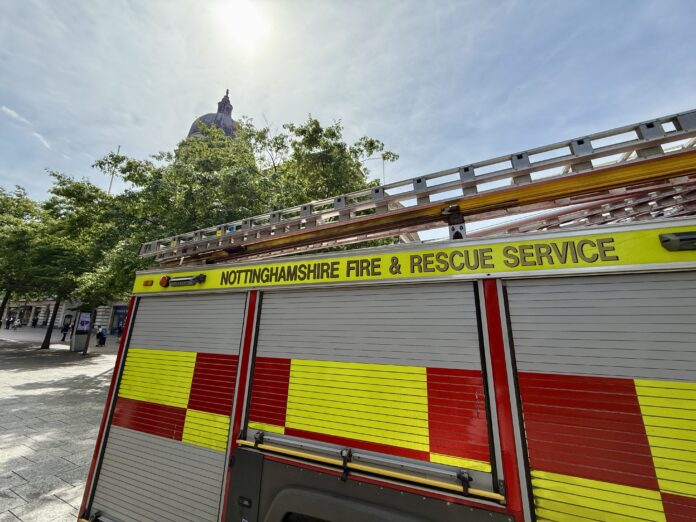At its meeting on 10 October, Nottinghamshire and City of Nottingham Fire and Rescue Authority’s Community Safety Committee is due to consider an update on the Service’s approach to tackling Unwanted Fire Signals (UwFS).
These incidents occur when fire crews are mobilised in response to an automatic fire alarm activation that does not involve a genuine emergency, often because alarms are triggered routinely and passed directly to the fire service without further checks.
The scale of the issue is significant. In 2024/25, Nottinghamshire Fire and Rescue Service (NFRS) attended 5,176 automatic fire alarm activations, an increase of 184 compared to the previous year. This equates to 4.3 UwFS per 1,000 population, which mirrors the national average. The rise reflects a broader national trend rather than a local anomaly, with services across the country facing similar pressures.
UwFS incidents place strain on resources, tying up appliances and personnel who may otherwise be available for genuine emergencies. They also generate avoidable costs in fuel, fleet maintenance and staff time, and contribute to environmental impacts through unnecessary vehicle movements. Reducing these callouts is therefore a priority in the Service’s Community Risk Management Plan (CRMP) for 2025–2028, with the current Annual Delivery Plan focusing on developing a refreshed methodology and strategy.
Progress to date includes the establishment of regular reporting to the CRMP Assurance Board, chaired by the Chief Fire Officer, as well as steps to strengthen the Business Support Team. Recruitment into the Fire Safety Advisor role—funded in part by East Midlands Combined County Authority (EMCCA) grant support—will bolster efforts to engage with businesses and residents over the correct use and testing of alarm systems. Alongside this, work with the Service’s Performance Team is refining data quality and incident classification, an area where discrepancies have historically hindered effective analysis both locally and nationally.
One measure under consideration is the introduction of charging for repeat false alarm offenders, a concept already in use in parts of the UK. Stakeholder consultation during the CRMP process in 2024 showed strong support for this approach, although it is seen only as a last resort if education and engagement fail. Any charging scheme would exclude schools, hospitals, domestic premises and other higher-risk sites. Officials remain mindful of potential unintended consequences, such as building owners suppressing alarms to avoid costs, which could ultimately compromise safety.
The National Fire Chiefs Council (NFCC) is due to publish new guidance on UwFS during 2025/26, and NFRS is feeding into this work to ensure national consistency. Locally, the Service will also consult external stakeholders before finalising any policy on cost recovery.







